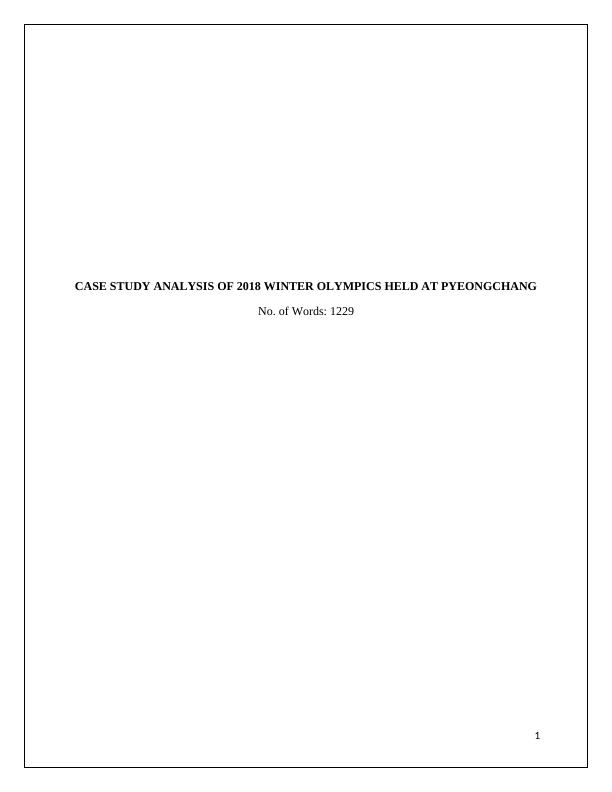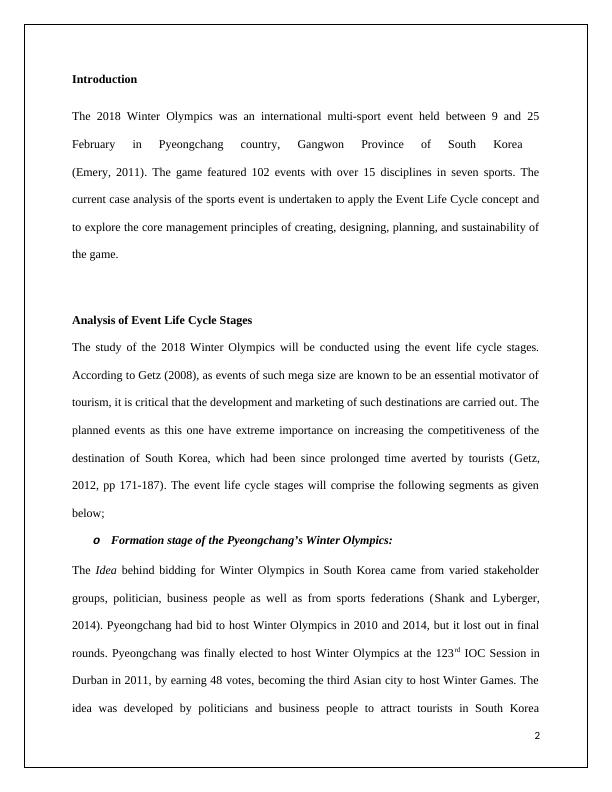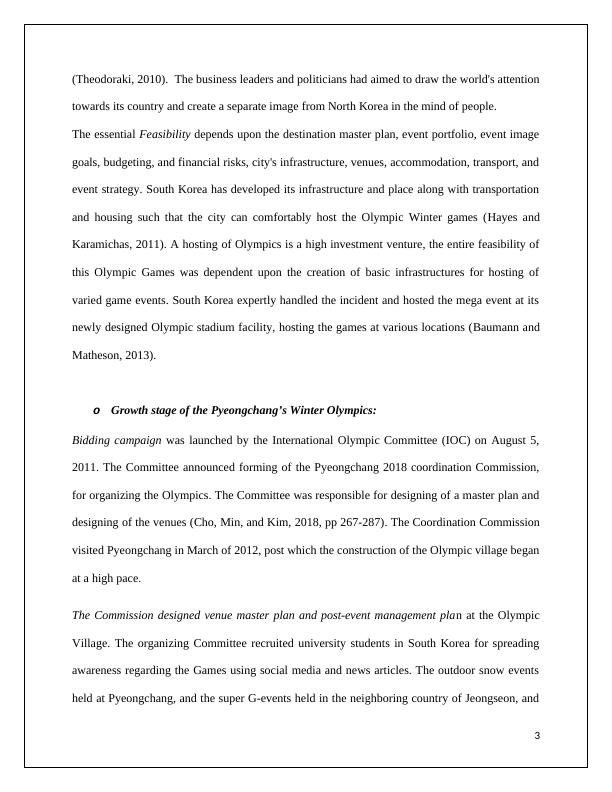Case Study Analysis of 2018 Winter Olympics Held at Pyeongchang
Analyzing the role of events management in the Tourism and Hospitality Industry through a case study analysis of the 2018 Winter Olympics in Pyeongchang, South Korea.
8 Pages1947 Words354 Views
Added on 2023-06-10
About This Document
The 2018 Winter Olympics held at Pyeongchang, South Korea was a mega event featuring 102 events with over 15 disciplines in seven sports. The study applies the Event Life Cycle concept and explores the core management principles of creating, designing, planning, and sustainability of the game. The case analysis covers the event life cycle stages, including the formation stage, growth stage, staging, and future development of the event destination. The study concludes with recommendations on sustainability and creating a positive impact on the environment, economic and socio-cultural initiatives.
Case Study Analysis of 2018 Winter Olympics Held at Pyeongchang
Analyzing the role of events management in the Tourism and Hospitality Industry through a case study analysis of the 2018 Winter Olympics in Pyeongchang, South Korea.
Added on 2023-06-10
ShareRelated Documents
End of preview
Want to access all the pages? Upload your documents or become a member.
Analysis of Pyeongchang Winter Olympics 2018
|7
|1841
|375
Analysis of 2018 Winter Olympic Games in Pyeongchang
|10
|1725
|70
PyeongChang Winter Olympics: Formation, Growth and Staging
|8
|1801
|467
Analysis of the event life cycle stages of Pyeongchang’s Winter Olympics
|7
|1794
|454
Event Management
|9
|2216
|267
Olympic Programme PyeongChang 2018 (PDF)
|11
|1880
|166



